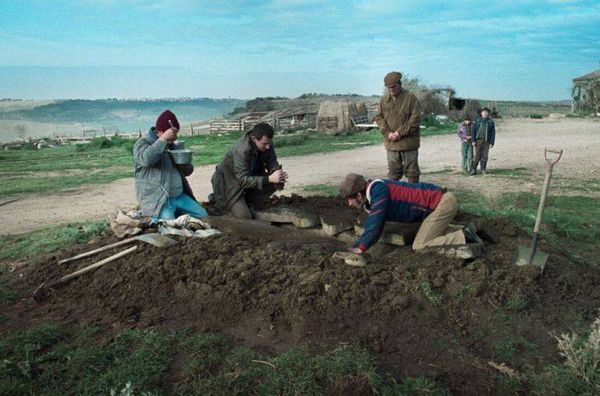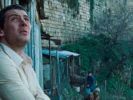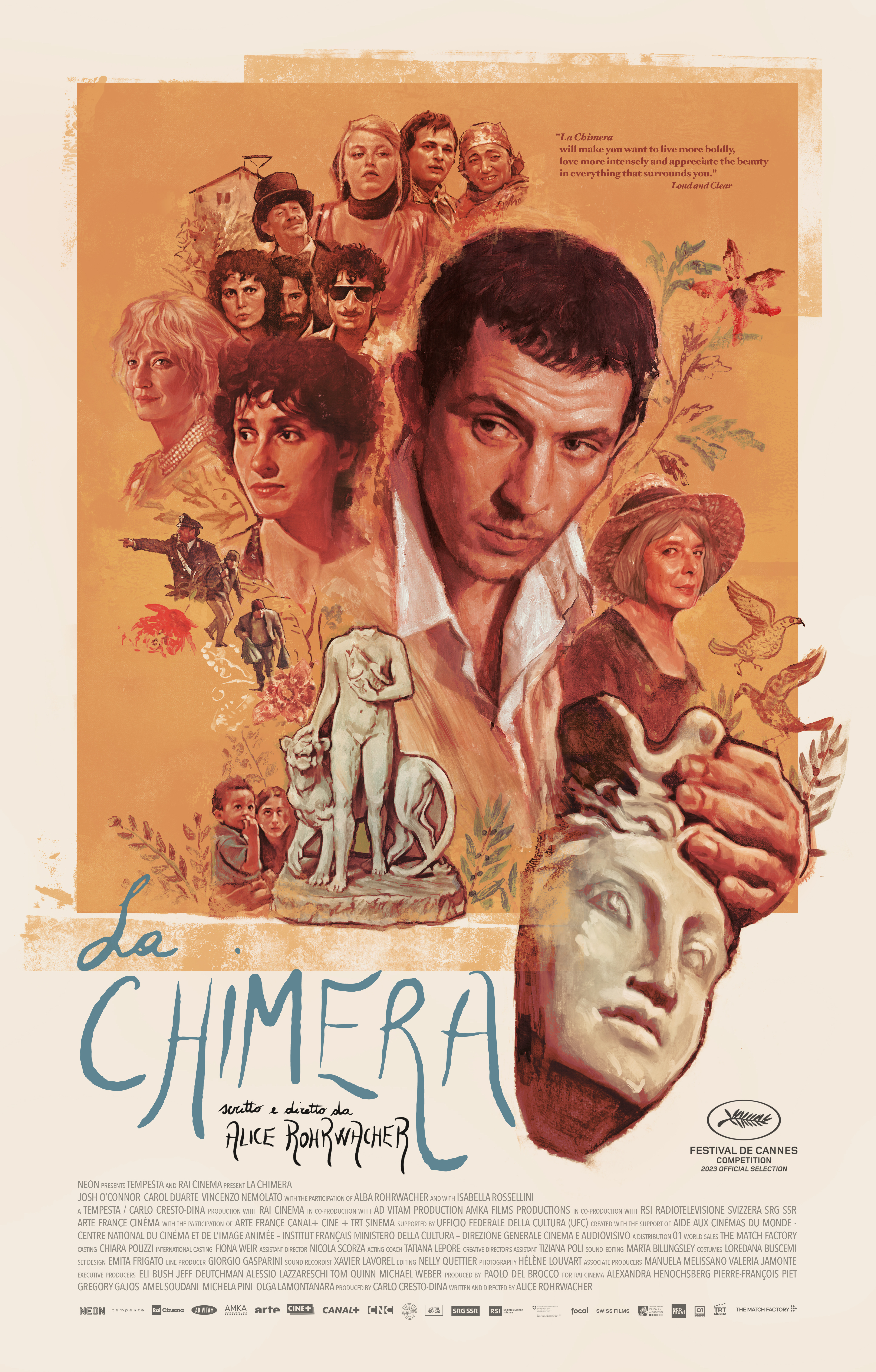Eye For Film >> Movies >> La Chimera (2023) Film Review
La Chimera
Reviewed by: Jennie Kermode

There are parts of the world where the ancient past exists in tantalising proximity to the present, where it’s difficult to escape the sense of being a latecomer to the party, scraping a living in the ruins of something greater. From the earliest days of its empire, Britain sought to borrow older imperial glory by presenting itself as the keeper of antique knowledge, the proper heir – regardless of location – to the treasures of Ancient Greece, Rome, and adjacent older civilisations such as the Etruscans. Alice Rohrwacher’s latest work, which is screening as part of the Glasgow Film Festival, follows a latter-day English adventurer, his grimy suit betokening the Empire’s fall, as he seeks to make his fortune from looting ancient tombs, only to discover something about his own status in the process.
The name chimera would seem, on the surface of it, to the Etruscan habit of hybridising human and animal forms in their ornaments and statuary, but it’s a fitting name for a film which is itself a hybrid of multiple forms and themes, never quite succeeding with any one of them or finding a solid identity of its own. It drifts around, beguiled by present day scenery and past artistry, sometimes investing itself in character, sometimes commenting on capitalism or gender, wending its way towards an ending which is neither logical (its big gesture trivial to undo) nor narratively satisfying.

The setting is Tarquinia (formerly Cometo), where Arthur (Josh O’Connor), just released from prison, settles in a shack above the steep slope outside the city walls. It’s a physically precarious existence. He’s a man with a financially precarious life, relieved to find that a few artefacts he hid away previously are still in place, yet anxious to get on with the next job. We follow him as he deals (by no means shyly) with the local gangsters who fence his finds, and as he goes out into the forest with a dowsing rod in search of more. Whether or not he has any supernatural talent is unclear, but some of the locals believe that he does, and that’s enough to persuade them to put the work in and dig where he says they should.
Arthur is proud of his lack of sentimentalism about the artefacts he unearths, but it would be wrong to say that he’s not attached to the past. He’s still in love with a local woman who has disappeared – her sisters never expect to see her again – and spends part of his time loafing around the dilapidated mansion (a relic of another more prosperous era) owned by her mother, Flora (a delightful Isabella Rosellini). Flora’s student and carer Italia (Carol Duarte) hangs around too, and she and Arthur gradually begin to take an interest in each other in spite of his noncommittal posturing and her bruised wariness.
Rohrwacher’s visually eclectic style is well suited to exploring the contrasts between present and past, natural and artificial, poverty and wealth. She finds beauty in broken things but is careful to show us the roughness of life as well, the dirt accumulated over time that is not so easy to scrape away. The film has thriller elements, as Arthur and his companions strive to evade the police, and practically everyone is corrupt on some level, but there’s a restlessness in Arthur himself which culminates in his discovery of a sense of aesthetic awe which stands in for his flimsy morality and gives him, at least briefly, the ability to glimpse something beyond all this.
It’s a moving moment in a curious, exploratory film, but it’s not altogether enough to justify the more than two hours of rambling leading up to it. La Chimera is packed full of good ideas but, in fusing them together, has become a lumbering, ungainly beast which treads a too-obvious path, unlikely to be remembered when its time is over.
Reviewed on: 02 Mar 2024

















